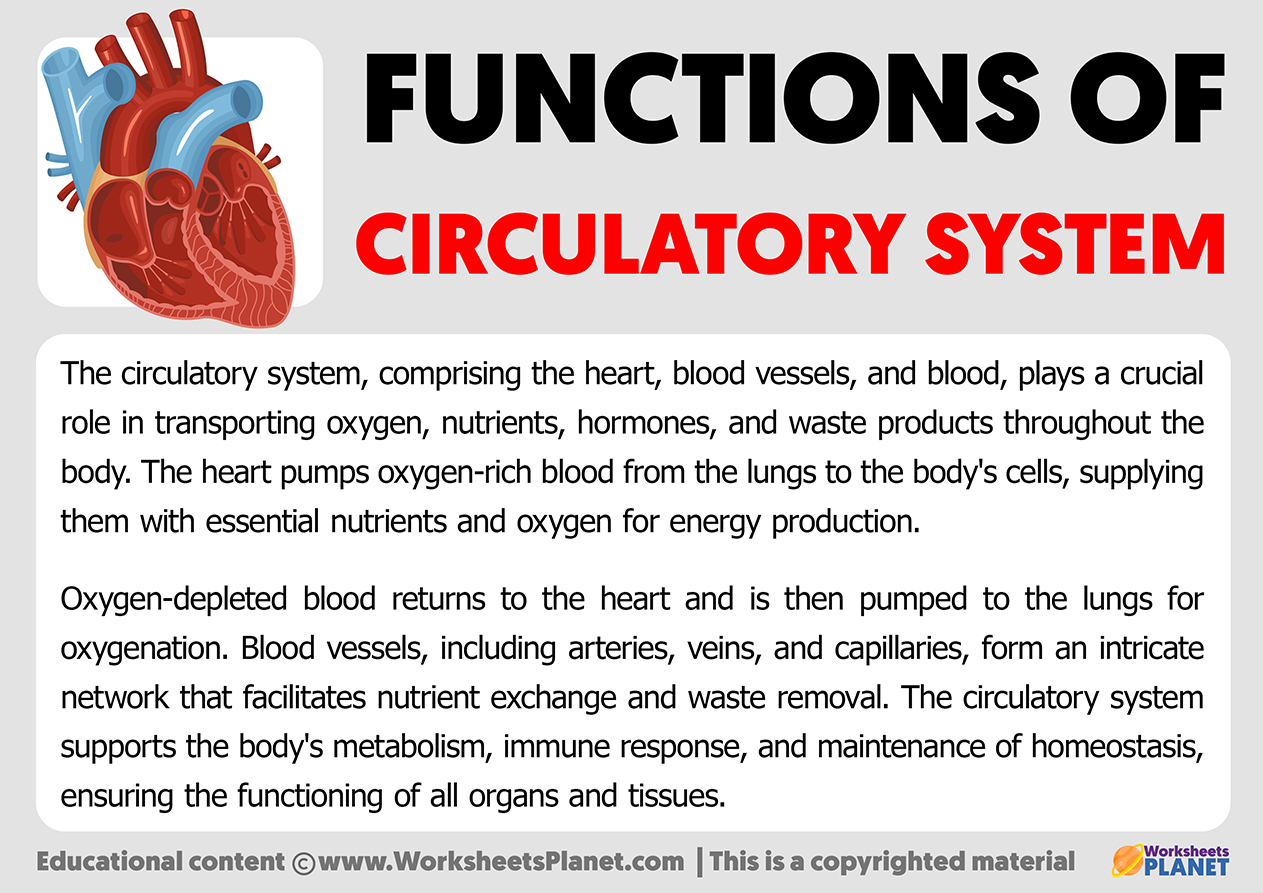The circulatory system, comprising the heart, blood vessels, and blood, plays a crucial role in transporting oxygen, nutrients, hormones, and waste products throughout the body.
The heart pumps oxygen-rich blood from the lungs to the body’s cells, supplying them with essential nutrients and oxygen for energy production.

Oxygen-depleted blood returns to the heart and is then pumped to the lungs for oxygenation. Blood vessels, including arteries, veins, and capillaries, form an intricate network that facilitates nutrient exchange and waste removal.
The circulatory system supports the body’s metabolism, immune response, and maintenance of homeostasis, ensuring the functioning of all organs and tissues.

